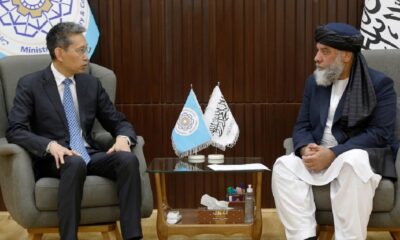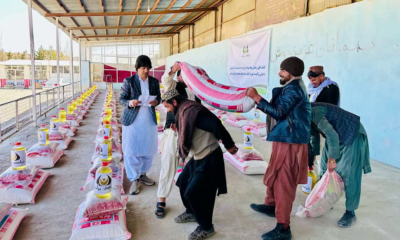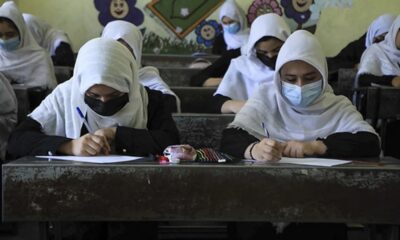Latest News
Afghanistan receives $53 million fund in 2023 for affected communities: OCHA
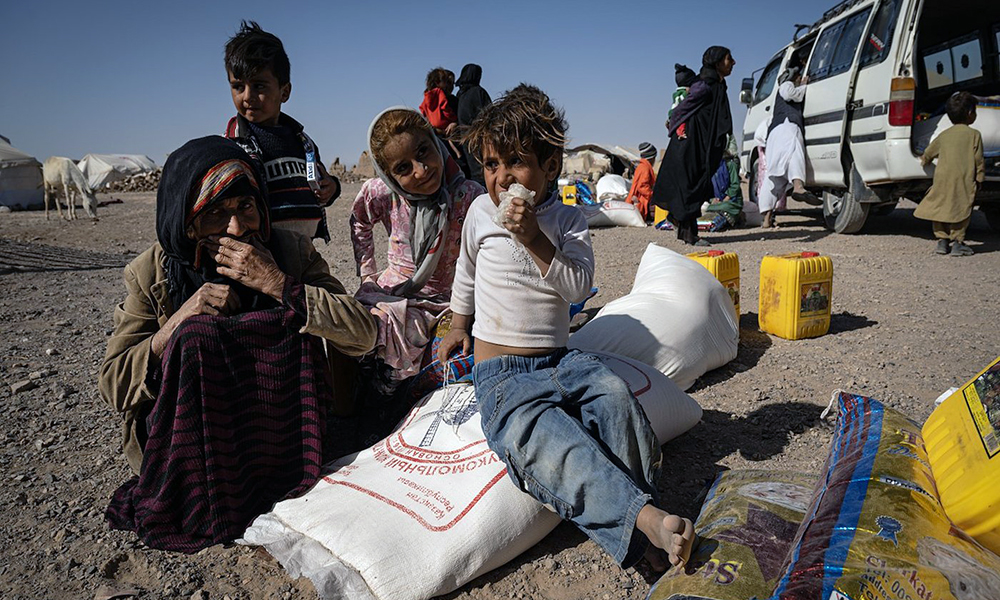
In 2023, Afghanistan received $53 million from the UN’s Central Emergency Response Fund (CERF), making it the second-highest recipient of CERF funding globally, OCHA said in a report.
According to the report, OCHA-managed Pooled Funds, CERF and the Afghanistan Humanitarian Fund (AHF) work in complementarity to maximize effectiveness and strengthen ways to deliver results for affected communities.
In March, amid some of the world’s highest levels of hunger, Afghanistan received $18 million from CERF’s Rapid Response window. At the time, a staggering 17.2 million people in Afghanistan did not know where their next meal would come from. They included 3.8 million people experiencing emergency levels of food insecurity, read the report.
With this funding, almost 390,000 people across Badghis, Daikundi, Ghor and Uruzgan provinces received in-kind and cash assistance to meet their immediate food needs and emergency resilience and livelihoods support. This helped families meet the required intake of 2,100 kilocalories per person per day, preventing a worsening of food security and malnutrition, the report added.
Since the CERF funding was disbursed, the food security outlook in Afghanistan has slightly improved; the number of people projected to experience acute hunger between November 2023 and March 2024 is down from an estimated 18.3 million to 15.8 million. The number of people enduring emergency levels of food insecurity also decreased, from 5.1 million to 3.5 million, according to the report.
In parallel with the CERF allocation, the AHF released $12.9 million to empower and build national NGOs’ capacity to deliver assistance. This makes the AHF the first Country-Based Pooled Fund to initiate an allocation dedicated to localization.
The report stated that in September 2023, with winter rapidly approaching and many programs facing disruption due to severe funding shortages, Afghanistan received a crucial $20 million allocation from CERF’s Underfunded Emergencies window.
It proved life-saving, as it helped Afghan families living in substandard and inadequate shelters, and it mitigated the heightened risks of exposure-related illnesses, including hypothermia and acute respiratory infections.
It also complemented the AHF’s largest allocation in 2023 of $109 million, released in August for multisector activities to prepare for harsh winter weather. The allocation reinforced ongoing efforts to avert the risk of famine during winter and improve people’s food security, thereby preserving the improvements made in hunger and nutrition since August 2021 due to the humanitarian system’s scale-up.
In October, a series of 6.3-magnitude earthquakes struck Herat Province in Afghanistan’s western region, killing several thousand people and injuring scores more.
The earthquakes affected some 275,000 people, with more than 40,000 homes either destroyed and significantly or moderately damaged.
To kick-start initial relief efforts, CERF allocated $5 million through its Rapid Response window. This served as a top-up to a $5 million emergency reserve allocation from the AHF that was released to partners within 24 hours of the first earthquake. This expedited allocation was pivotal in quickly delivering essential humanitarian aid to families who had lost their homes and livelihoods.
These funds enabled humanitarian partners to provide vital assistance. To date, they have reached more than 242,000 people, including 146,700 people with emergency shelter (tents), non-food items (blankets, tarpaulins, kitchen sets), cash assistance, food and nutrition items, drinkable water, protection services and winterization items, such as plastic sheets and warm winter clothes.
Following the Government of Pakistan’s “Illegal Foreigners Deportation Plan” decree, which came into effect on 1 November 2023, the UN in Afghanistan has observed a marked increase in the arrival of Afghans from Pakistan. At one point in early November, the daily influx exceeded 17,000 people, a stark contrast to the previous daily average of 260 people.
More than 80 percent of those returning are women and children.
In response, CERF provided $10 million to improve the response to people arriving at the border, providing registration services, health services, aid distribution, family unification support, child protection, psychosocial support and legal aid. These services are vital, as families endure harrowing and traumatic journeys back to Afghanistan. Many returnees have not lived there for several decades, and they have limited or no familial ties in the areas they’re returning to.
CERF’s Rapid Response and Underfunded Emergencies windows are crucial in providing essential funding to critical operations and life-saving programs across Afghanistan. They contribute to famine prevention, easing additional burdens on women and girls—from mental health risks to gender-based violence—and they support activities such as mine surveillance and clearance, emergency shelter, education and access to clean water. For thousands of families, this support is their only protection from a freezing winter.
So far this year, the Pooled Funds have allocated $188 million (CERF: $53 million; AHF: $135 million) to support and enable time-critical humanitarian action in Afghanistan, including to people affected by natural disasters and sudden-onset crises.
Latest News
Dozens of needy families in Ghazni get much needed food aid from Bayat Foundation
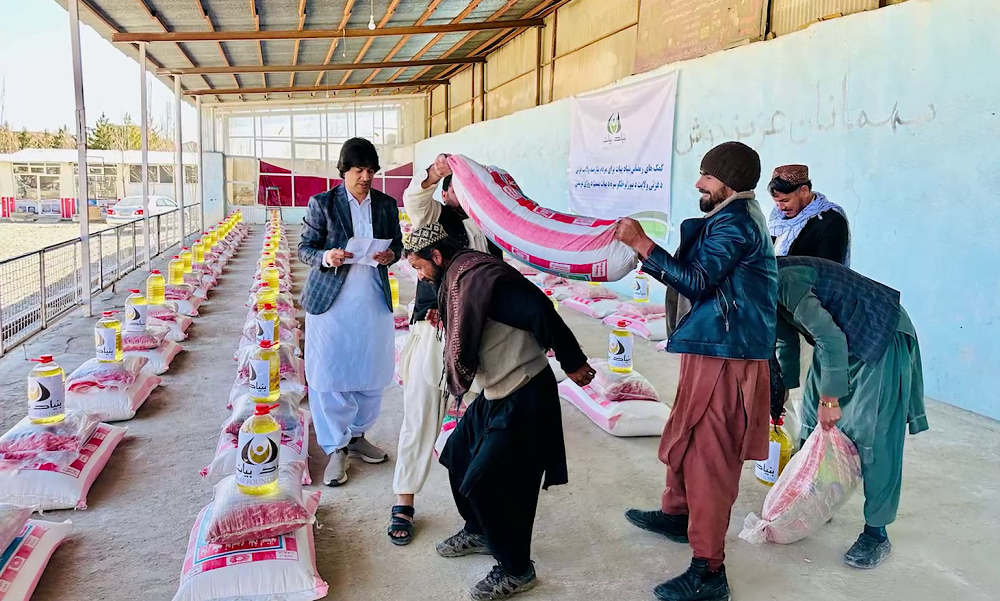
In continuation of Ramadan aid efforts in Afghanistan, Bayat Foundation this week distributed food aid packages to dozens of needy families in central Ghazni province.
Officials from Bayat Foundation stated that these donations were distributed to deserving families after a thorough assessment was carried out.
The foundation distributed food aid that included essential items such as flour, rice, and cooking oil.
Families who received the aid welcomed the initiative and thanked the foundation. They also appealed to other organizations to help the needy during the holy month of Ramadan.
Bayat Foundation has provided significant aid to the needy residents of this province in the past.
The foundation has also distributed substantial amounts of food aid to several other provinces so far this Ramadan.
Bayat Foundation however has also been at the forefront of providing humanitarian assistance during disasters, such as earthquakes and floods. In addition, it has rolled out numerous projects over the years, such as the project to provide clean drinking water in various provinces. It has also helped build mosques, schools and healthcare centers.
Latest News
UN warns over 4 million Afghan girls will be deprived of education by 2030 if ban continues

United Nations spokesperson Stéphane Dujarric warned Monday that over four million Afghan girls could be deprived of an education by 2030 if the Islamic Emirate of Afghanistan (IEA) continues with its ban.
Addressing a press conference in New York Dujarric said UNICEF has reported that another 400,000 girls are being deprived of a secondary school education in this new academic year, which started this week.
“UNICEF tells us that in Afghanistan the new school year started today but an additional 400,000 girls are being deprived of their right to education bringing the total number of girls without access to this essential right to 2.2 million.
“That’s 2.2 million girls being deprived of education today. [This] marks three years since the start of the ban on girls secondary education. UNICEF says that if this ban persists until 2030, which we hope it won’t, over four million girls will have been deprived of their right to education beyond primary schooling.”
He went on to say “Afghanistan cannot leave half of its population behind despite the ban.”
Dujarric pointed out that UNICEF has provided access to education to some 445,000 children through community-based learning, 64% of whom are girls. UNICEF is also empowering female teachers to ensure that girls have positive role models,” he said.
Latest News
Norwegian Refugee Council cuts back on essential humanitarian services in Afghanistan
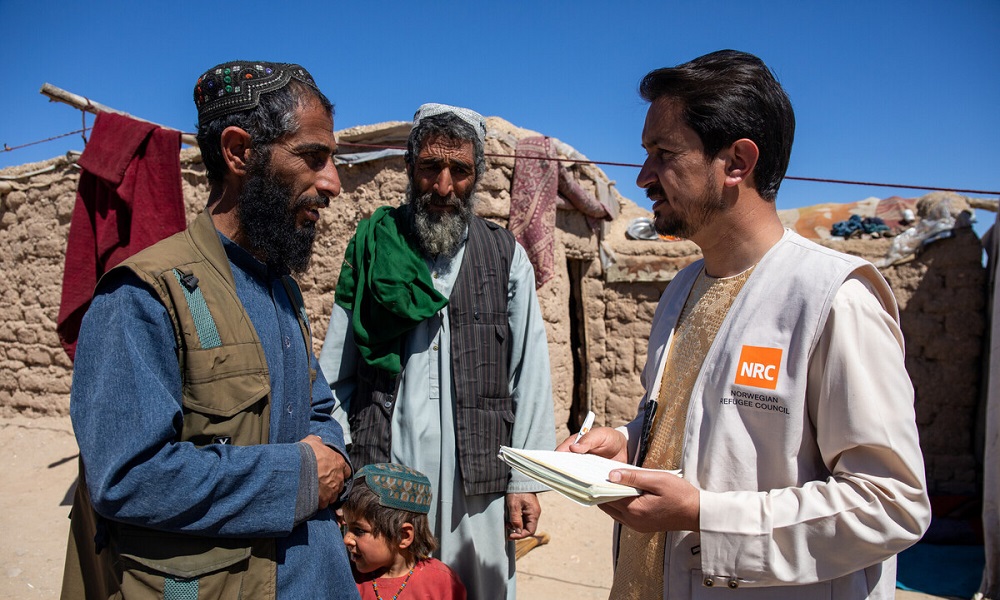
The Norwegian Refugee Council (NRC) said Tuesday it is forced to cut back on services in Afghanistan due to the cuts in aid by Donald Trump, the president of the United States.
In a statement issued on Tuesday, Suze van Meegen, N RC’s interim country director in Afghanistan said: “At a time when men, women and children in Afghanistan urgently need international funding and support, NRC and our partners are facing drastic funding cuts from key donors.
“This situation leaves us with no choice but to make untenable reductions in our services, further jeopardising vital lifelines for the most vulnerable and impoverished communities.”
She said like many humanitarian organisations, NRC Afghanistan has been forced to close offices in several provinces and lay off many dedicated and professional humanitarian staff, with a particularly adverse impact on female aid workers.
“These funding cuts have far-reaching consequences. They extend from communities that have lost access to basic assistance to thousands of experienced Afghan staff that have lost their livelihoods,” van Meegen said.
The NRC warned that wide-ranging cuts in aid will lead to a diminishing footprint of humanitarian agencies in Afghanistan and leave the lives of millions on an increasingly dangerous trajectory, affecting women and children most adversely
In January, Trump suspended ongoing aid projects which forced the majority of US-funded humanitarian work to be put on hold or end. Other donor governments – including Belgium, France, Germany, the Netherlands, Belgium Sweden, Switzerland and the United Kingdom – have since also announced that their global aid budgets will be reduced in the coming years, foreshadowing a significant drop in the assistance available to the world’s most vulnerable.
“This is the most challenging situation that NRC Afghanistan has faced in its 22 years in the country. However, I want to emphasise that NRC Afghanistan is not shutting down its operations. We remain committed to staying in Afghanistan to support displaced women, men and children and to ensure that communities affected by decades of war are not left behind,” said van Meegen.
The NRC said that since January, it has been forced to close two of its community resource centres, with two more at risk without suitable funding in the coming month.
The centres have been crucial in supporting returning and internally displaced Afghans, providing assistance with housing, food, legal assistance and referrals to healthcare providers, particularly for Afghan women who are heading their families and depend on female-to-female aid.
The loss of female aid workers across the country is further restricting women and children’s access to essential services, reinforcing the conditions that prevent them from enjoying their basic rights, the NRC said.
Van Meegen said: “To prevent catastrophic damage in Afghanistan, the international community needs to step up and commit to supporting a population that has faced decades of war and neglect.”
The NRC has been present in Afghanistan since 2003, delivering key services with the support of its donors, directly delivering assistance to people in need.
This includes providing shelter and protection services to displaced Afghans and those returning from neighbouring countries.
According to the UN’s latest findings, almost 22.3 million Afghans need humanitarian assistance and 1 in 3 Afghans (more than 14 million people) do not know where their next meal will come from.
In 2024, the United States contributed just under $742 million to Afghanistan’s $1.72 billion Humanitarian Response Plan – this equalled 43.4%.
The 2025 humanitarian response plan for Afghanistan is currently just 13.3%, according to UNOCHA.
-
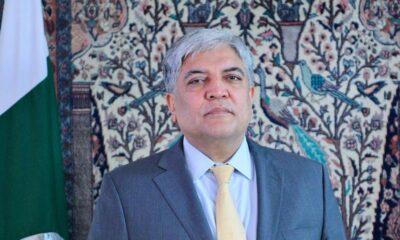
 Latest News5 days ago
Latest News5 days agoPakistan once again urges IEA to act against militants
-

 Sport4 days ago
Sport4 days agoAFC Beach Soccer: UAE thrash Afghanistan 7-1 in opener
-
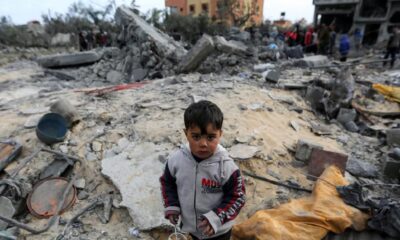
 Regional5 days ago
Regional5 days agoAt least 91 killed in Gaza as Israel abandons ceasefire, orders evacuations
-

 Latest News4 days ago
Latest News4 days agoAmerican freed by IEA reunited with wife, former cellmate, in US
-
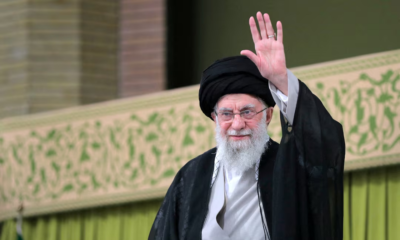
 Regional4 days ago
Regional4 days agoIran’s leader says Yemen’s Houthis act independently, warns against US action
-
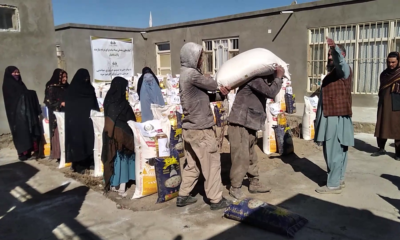
 Latest News4 days ago
Latest News4 days agoBayat Foundation delivers Ramadan aid to needy families in Bamyan
-

 International Sports3 days ago
International Sports3 days agoBoxing legend George Foreman dies at 76
-
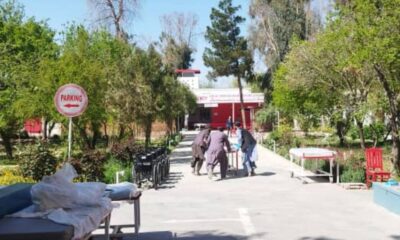
 Latest News4 days ago
Latest News4 days agoEighteen injured after dispute between two brothers in Helmand


